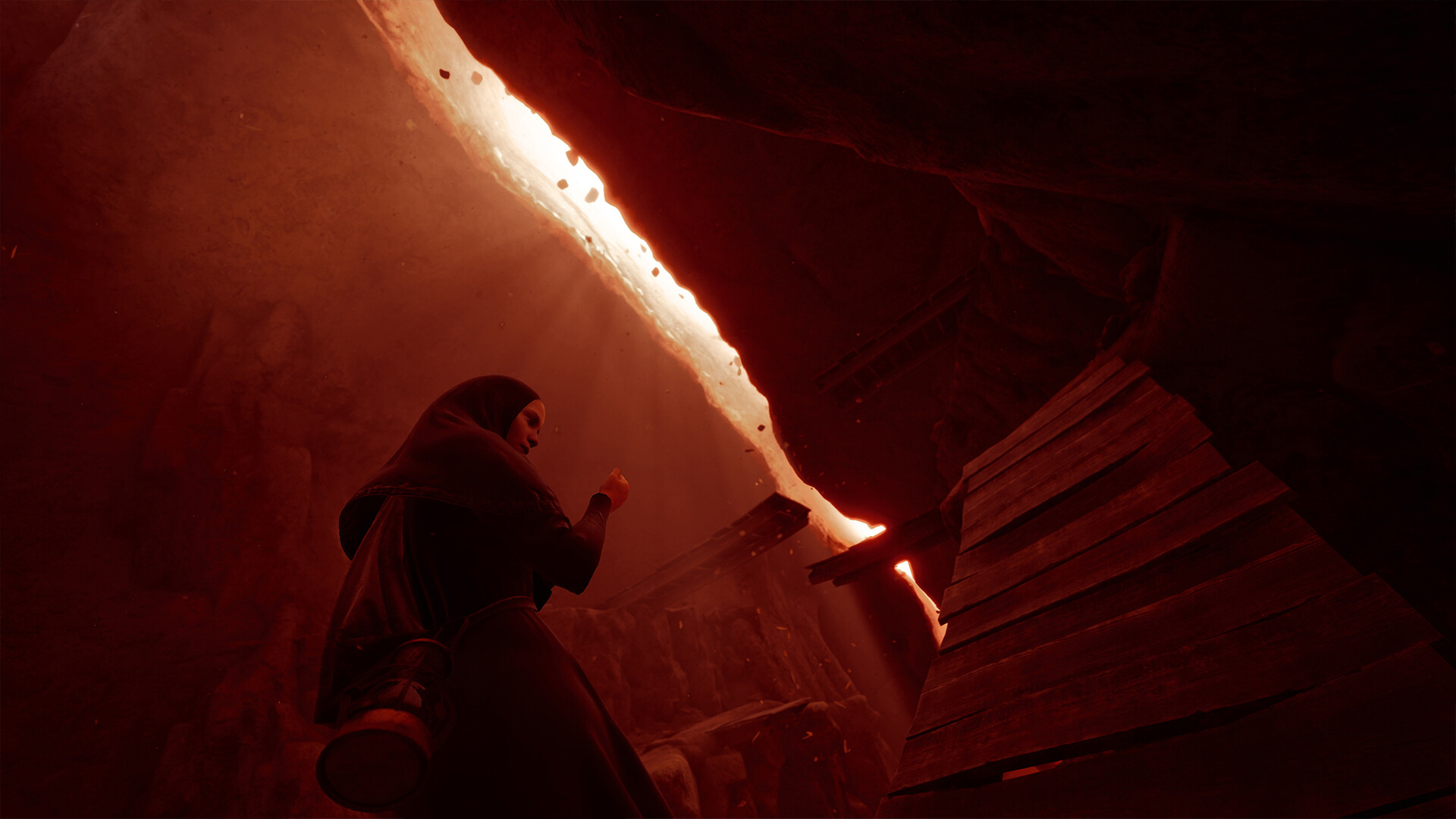I admit that when I first saw the trailer for Indika, I felt that it was going to be a weird game. All you can tell from the first few seconds of the trailer is that you take control of a nun in a snowy and dark environment which evokes the feeling that that this will be a horror game. However, a few more seconds in, and it throws you off with some pixelated gameplay of racing and platforming. You’re then left wondering: “What the heck is this game about?”
It’s all dark humor, really. Indika sets the tone of all gloom and doom as you follow the story of a nun not fitting in with the congregation or let alone the religion. She has doubts, and these are the moments when the out-of-nowhere dark frivolities happen. An example of that is when the game awards experience points for completing mundane tasks such as delivering food or drawing water from the well. Not only do earning experience points seem out of place for a narrative story, but it also depicts them as gold tokens in a pixelated format.
Indika is a stark contrast of the good and evil duality that you have no control over. This isn’t a pick your own adventure game; you just follow the fate of a nun taking on a task that ultimately leads her to meeting an escaped convict and helping him. If a story consisting of a nun helping a convict doesn’t scream a wonderful time, give the game a go and see what happens at the end.

The other duality that Indika touches on is the pixelated bits of gameplay that is so different from the lifelike 3D graphics that make up 90% of the game. These pixelated mini games pop up whenever the nun has a flashback of when she was a child. It pretty much tells the reason why she ended up in a monastery and why her faith is wavering. Since this game is all about being unpredictable, the mini games aren’t necessary in pushing the story forward; they just seem to be there for giggles.
The main game, however, challenges you with some puzzles and a bit of action adventure. At one point, you’ll be tasked to open a locked door, then you’ll be needing to outrun a large demon dog. It will take you about three to five hours to complete the linear game. There is a collectible gameplay element that acts as the light RPG experience points element, but like the mini games, they really aren’t necessary (there’s a loading screen that tells you so).

One thing that bothered me about Indika is the tiny UI interface for the menu and the in-game text. I played this on a decent-sized TV, and I had to sit close to the TV for most of the game just so that I did not miss anything or navigate through the system settings. In fact, I was going through the settings at first to see if I could change the text size for easy viewing but there wasn’t one.
Indika presents itself as a quirky game that seems to throw a lot of incongruous things together, but it’s actually a deep narrative about the subject of faith. If you don’t take it seriously, just like how the developers probably expect you to, you’ll find the story to be thought-provoking.
This review is based on a retail copy of the game provided by the publisher.

